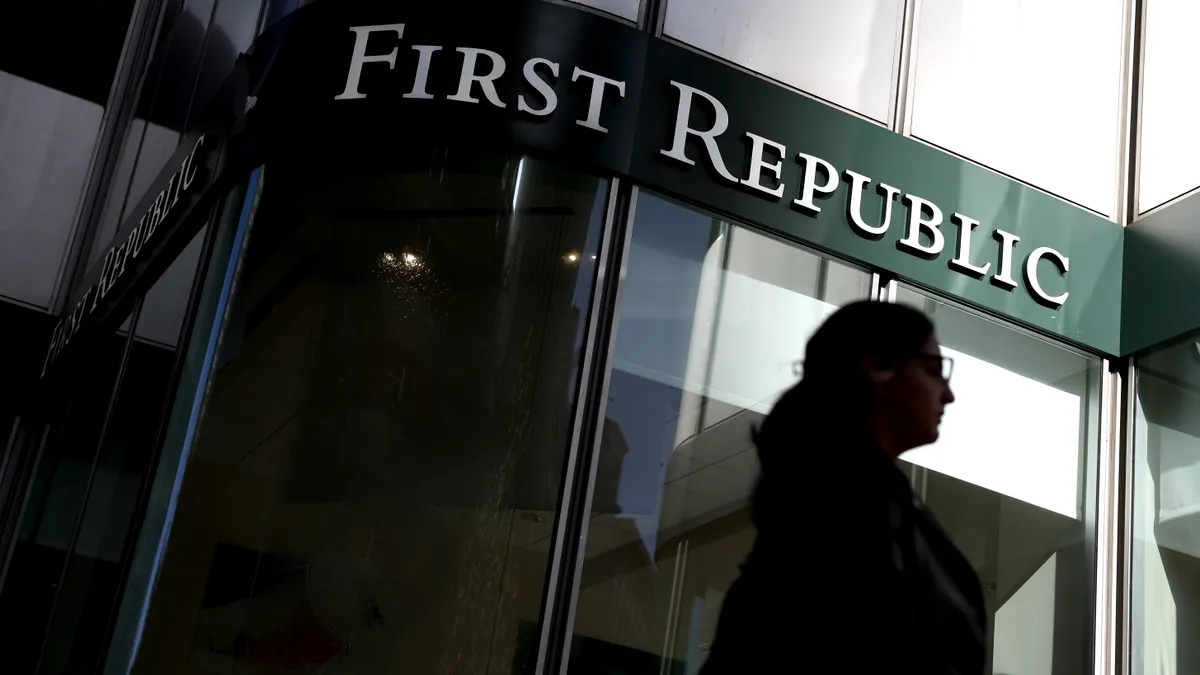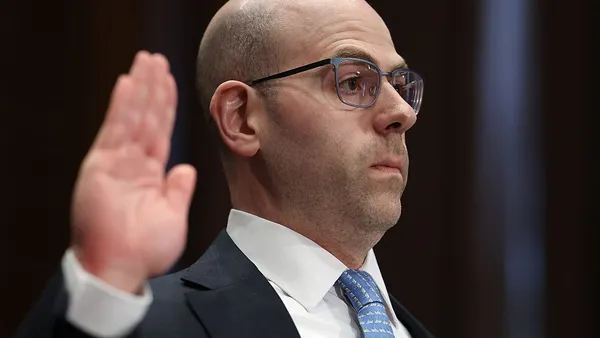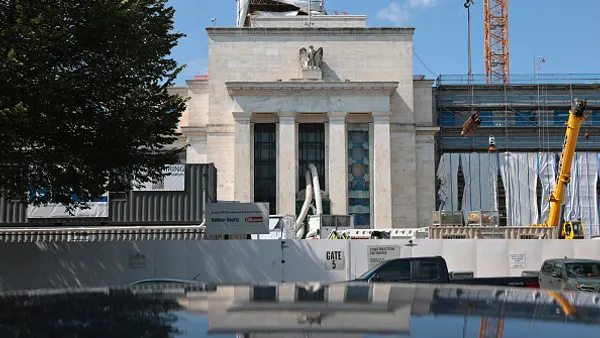Dive Brief:
- The Federal Deposit Insurance Corp. on Friday acknowledged it could have been more diligent in its oversight of First Republic Bank, the regional lender that was taken over by regulators and subsequently sold to JPMorgan Chase in May after its collapse.
- In a 62-page review, the regulator said supervisors could have done more to address factors that made First Republic vulnerable to “dramatic and severe contagion effects,” such as the firm’s high level of uninsured deposits and its exposure to rising interest rates.
- San Francisco-based First Republic’s collapse, the second-largest bank failure in U.S. history, came amid a tumultuous period in the financial sector, beginning with the March collapses of Santa Clara, California-based Silicon Valley Bank and New York City-headquartered Signature Bank.
Dive Insight:
In its post-mortem of its oversight of First Republic on Friday, the FDIC admitted there were “opportunities for a more holistic approach to supervising the bank.”
“We cannot say whether taking earlier supervisory action such as criticizing interest rate risk or liquidity risk management would have prevented First Republic from failing given the significance and speed of deposit withdrawals,” the FDIC said in its report. “However, meaningful action to mitigate interest rate risk and address funding concentrations would have made the bank more resilient and less vulnerable to the March 2023 contagion event.”
Spooked by the failures of regional lenders SVB and Signature and reports that First Republic was facing its own financial woes, First Republic’s depositors began to withdraw funds at a rapid rate, contributing to the firm’s collapse and takeover.
"While First Republic was initially able to manage liquidity to meet withdrawal requests, management's strategic decision to retain a long-standing business model with a significant asset/liability mismatch during a period of rising interest rates contributed to a loss of confidence in the bank on the part of depositors, and, ultimately constrained options for the bank to restructure its balance sheet by selling assets or raising capital,” the FDIC said.
The FDIC noted the bank experienced a period of rapid growth in the years leading up to its failure. That growth coincided with a decline in FDIC examination hours, the regulator said.
“We observed that over the 4-year period of our review, First Republic doubled in size while actual examination hours declined by 11 percent,” the FDIC said. “While we would not expect examination hours to parallel asset growth and while there could be explanations such as examination efficiencies, on the surface, this trend appears counterintuitive and may have warranted greater explanation in annual supervisory plans.”
The report also criticized the agency’s 2021 decision to give the bank top ratings on liquidity risk management, calling the move “too generous” and “inconsistent with First Republic’s high level of uninsured deposits.”
“Greater criticism of First Republic’s vulnerability to interest rate risk and reliance on a high level of uninsured deposits, may have also prompted a downgrade,” the report said.
The report comes as regulators have floated proposals for new capital requirements, long-term debt and resolution plans for banks — measures they say will strengthen the financial system and help prevent future bank failures.
The FDIC review also comes as the agency’s post-failure handling of First Republic has faced criticism from one of its board members.
During last month’s board meeting, FDIC board member Jonathan McKernan said the board should have held a vote on the agency’s decision to sell First Republic to JPMorgan Chase, arguing the on-the-record step would boost accountability and transparency at the agency.
“We shouldn’t, in my view, try to give ourselves some plausible deniability around these key questions by delegating the hard questions to staff,” said McKernan, who proposed board members should be required to vote on the sale of any failed bank that has $50 billion or more in assets. “My proposal would fix all that and help restore to the board its proper oversight role.”
Other board members were quick to point out complications to McKernan’s solution. Michael Hsu, an FDIC board member who serves as acting head of the Office of the Comptroller of the Currency, warned that requiring a board vote on the sale of a failed bank could impede the FDIC’s ability to resolve the situation in an orderly manner.
“In the fog of large bank failures, the risk of a game of telephone as information is gathered and shared is elevated. Complexity and time pressures can further exacerbate that risk,” Hsu said. “Multiply that by five board members each seeking to do the right thing, but with differing levels of familiarity with the failing bank and associated issues, and the likelihood that such a process creates counterproductive noise and confusion can rise materially.”














